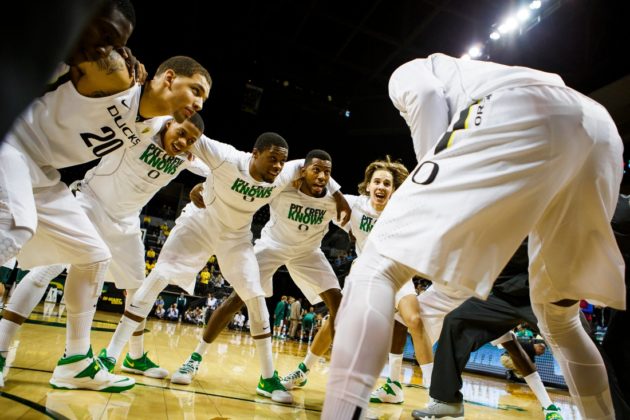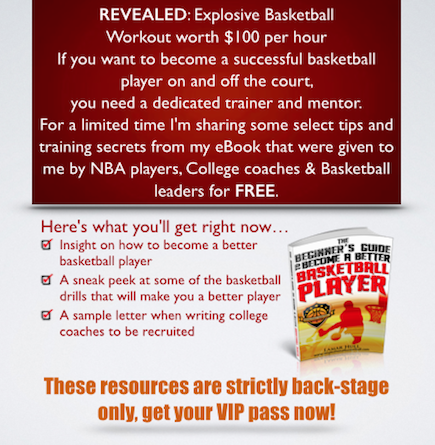
- 0
- 8K
- 0 likes
How to Be a Leader in Basketball
Point Guard Tips: Be a Leader and Coach on the Court

Cleveland Cavaliers’ Kyrie Irving, left, talks with head coach Tyronn Lue in the second half in Game 2 of a first-round NBA basketball playoff series against the Detroit Pistons, Wednesday, April 20, 2016, in Cleveland. (AP Photo/Tony Dejak)
The starting Point Guard at the youth, high school and college level of basketball has the most important role on the team. On average the PG is the smallest player, but what he lacks in height he makes up with a high basketball IQ, superb skill set and the ability to lead.
We can always cover skill development and give you endless amounts of drills and tips to improve your game, but today we are covering something different. We are diving into an aspect of the game that is often overlooked because it doesn’t make the highlight reel and it can’t be counted in the statistic column after a win.
This quality is leadership! If done correctly you should be an extension of the coach on the floor, but in order to do so you must follow a few key strategies so you can start leading your team to victory. Here are 3 tips for point guards on how to be an effective leader and coach on the court!
#1 Gaining the Respect of Your Teammates
 If you don’t remember anything else remember this, nothing means more than the guys on your team. These are not only your peers but they are your brothers, your family and your backup when you step into battle.
If you don’t remember anything else remember this, nothing means more than the guys on your team. These are not only your peers but they are your brothers, your family and your backup when you step into battle.
You have to be willing as a Point Guard to do whatever it takes for your teammates on and off the court. If that means picking them up and making sure they get to class or staying with them after practice to get extra shots up, or helping them with improving their game through basketball drills and workouts, you do it.
Think of it like this, the better each and every one of your teammates are, the more likely your team is to succeed in the game. This philosophy goes for the starting five, first off the bench and the one who never sees the floor. You treat them all with the same respect and want to see each and every team member reach success.
A common mistake young leader’s make is trying to be a leader vocally before ever proving it with their actions. If you try to push your teammates but are the last one to practice and the first one to leave, your teammates will not consider you a leader.
The way you gain their respect is by carrying yourself with humility and holding yourself to the highest standard. You are the first person in the gym, you have the highest GPA, you accept responsibility for every loss and don’t beg for the attention after a win.
These are the kind of high-quality character leaders that gain the respect for their peers and have the ability to lead them vocally when the time arises.
#2 Never Outshine the Coach
At the end of the day the head coach is the owner of the team. He dictates the plays you run, the players that play and the culture of the entire organization. Being a leader in your own right requires you to have the head coach as an ally, remember you are an extension of the coach, not the coach.
The title says be a coach on the court, not THE coach on the court. Again, be an assistant to the coach to get everyone in tune to what he is trying to accomplish with the team!
As the New York Times Best Selling author Robert Greene stated with the first law of power, “Never Outshine the Master“, always make those above you feel comfortably superior.
In your desire to please and impress them, do not go too far in displaying your talents or you might accomplish the opposite. “Make your masters appear more brilliant than they are and you will attain the heights of power.”
Once you have the respect of your teammates you must obtain even more respect from your coach. In order to do that, accomplish the following:
- Set up individual meetings to have a better grasp of the offense.
- Commit the fewest amount of turnovers in practice.
- Know his philosophy like the back of your hand and have the ability to execute every detail to perfection.
- The more you understand and execute the coach’s game plan the more freedom he will be willing to give you.
They always say, with discipline comes freedom! The players who can call their own plays, make fancy passes and take risks are the ones who have shown over and over in practice that they have the highest basketball IQ.
Do not deviate away from the coach’s game plan until you have proven your discipline and ability to execute at the highest level. You will be surprised how much freedom execution really has.
#3 Adversity Defines Your Character
This one is HUGE!
In sports and in life a tell-tale sign of an individual’s true character is how they react when adversity strikes. Sports resemble a rollercoaster in the fact that there are constant highs and lows every practice, game and season. Whether it is injuries, a cold streak in shooting or a simple turnover, the Point Guards reaction to this adversity is crucial.
If you make a turnover, take the blame even if it is your teammates fault. Leaders do not place blame on others because it shows the team that you cannot handle the burden of mistakes. If you don’t have the mental toughness to assume responsibility for the losses then you cannot be recognized as the leader for the wins.
One aspect a Point Guard must focus on controlling is their body language. Most communication clues are identified through nonverbal clues. The guy or girl who has his or her head down after missing a shot or a towel over their head pouting when the coach subs them out is NOT a leader.
A leader’s body language is positive, uplifting and encouraging no matter what may happen during the course of a game. Control your tone, body language and composure throughout the course of a season and before you know it the entire team will be looking to you as their captain.
Conclusion
Becoming a leader on the court is not an easy task and is the reason very few Point Guards can perform at a high level. The mental and physical toughness required to truly be successful at the position is not for everyone.
However, if you do have what it takes to gain the respect of your teammates, become an extension of the coach and persevere through adversity the reward will be more wins. That’s the reason we all play isn’t it?





LEAVE A COMMENT